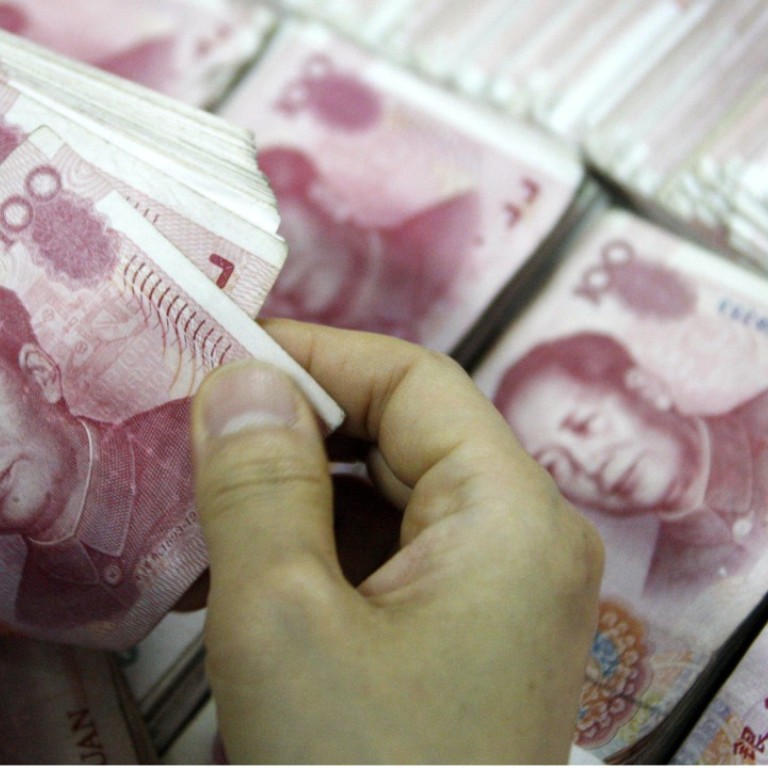
China tries to boost support for small businesses through taxes, loans
Value-added tax concession extended and reserve requirement ratios of commercial banks to be lowered to encourage lending
Beijing is trying to boost support for small businesses saddled with higher financing costs because of its deleveraging campaign, and amid Washington’s plan to cut corporate taxes.
China’s cabinet on Wednesday extended the value-added tax exemption policy for companies with monthly sales revenue of less than 30,000 yuan (US$4,520) for three more years.
The State Council also cut reserve requirement ratios for commercial banks and it will strengthen financing guarantee agencies – with a national loans guarantee fund to be set up – to help small businesses obtain loans at a lower cost.
“Increasing the fiscal and financial support for small and micro firms … is a good way to boost employment, generate new growth opportunities and invigorate the economy,” the cabinet said in a statement.
The vast majority of China’s workforce is employed by small and medium-sized firms, meaning they are an important factor in maintaining social stability. These businesses are also vulnerable to the slightest changes in the market – such as declining Christmas orders, money rate rises or unexpected tax bills.
Added to that is Washington’s plan to lower the corporate tax rate from 35 per cent to 20 per cent – lower than China’s rate of 25 per cent – which will put pressure on the world’s second largest economy in the long term, according to Ding Shuang, chief China economist with Standard Chartered Bank.
Beijing should analyse the potential impact of the US move and introduce countermeasures, Ding said.
But “the [State Council] statement, like the attention given to the entrepreneurial spirit earlier this week, is more of a gesture ahead of the party congress,” Ding said, referring to a directive from the Communist Party praising businesspeople for boosting growth and vowing to protect their rights and interests.
China kept its corporate tax rate at 25 per cent in the latest revision of its tax laws in February, but it has made efforts to reduce other business burdens such as administrative fees and financing costs.
Under the latest measures, the reserve requirement ratios of commercial banks will be lowered – and they may receive relending support from the central bank – if their outstanding or new loans to small businesses reach a certain level.
The banks will meanwhile be exempt from value-added tax on interest revenue for those small loans for the next two years.
They will also be encouraged to issue special bonds, with the proceeds used for lending to small businesses.
Premier Li Keqiang promised in his annual government work report in March to relieve the corporate burden by 1 trillion yuan this year, nearly half of which would be achieved through value-added tax reform and the rest by reducing fees.
But Tang Dajie, secretary general of Beijing-based think tank the China Enterprise Institute, said measures such as exemptions were having little effect for most companies.
“This sort of figure sounds good on paper ... but none of the dozens of companies we surveyed have seen a reduction in overall tax costs,” Tang said. “Exemptions only benefit a limited number of firms ... we still haven’t seen any formal tax-cut arrangements.”
China’s fiscal revenue jumped 9.8 per cent in the first eight months from a year ago – far higher than the country’s economic growth, according to the Ministry of Finance.
Tang added that government directives would not be enough to encourage banks to lend more to small businesses.
“The fundamental solution should be having more financing channels available, including setting up more private banks and small lenders,” he said.

